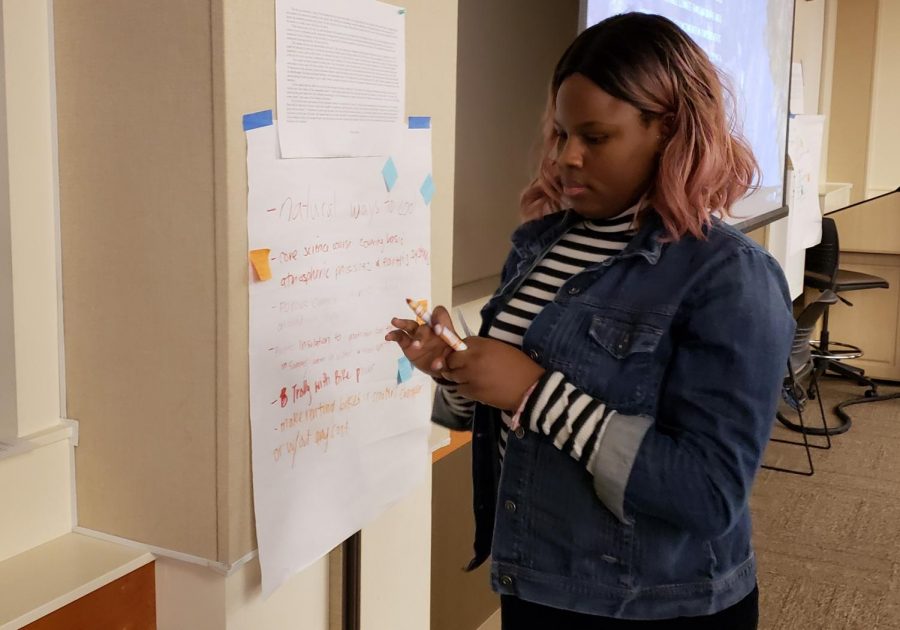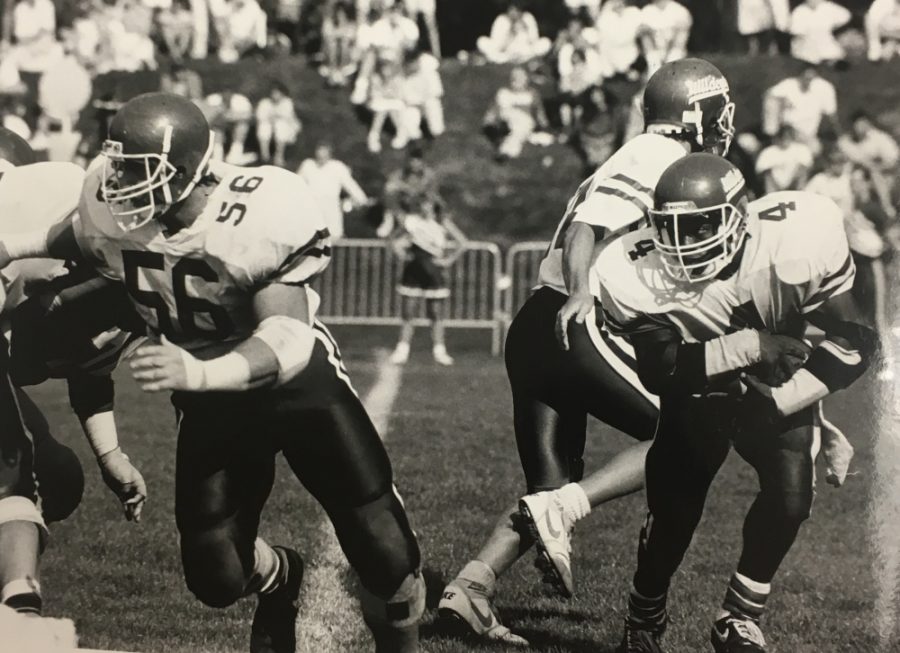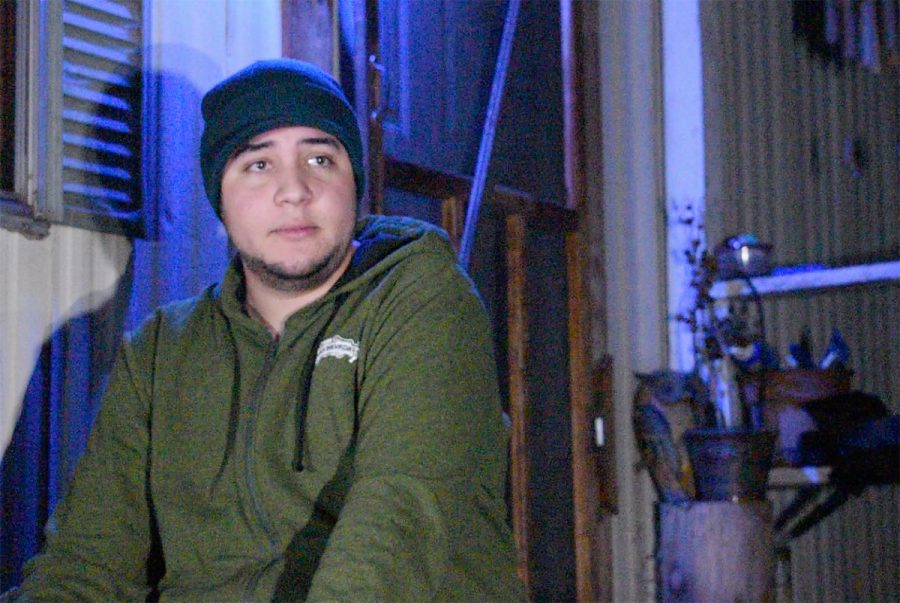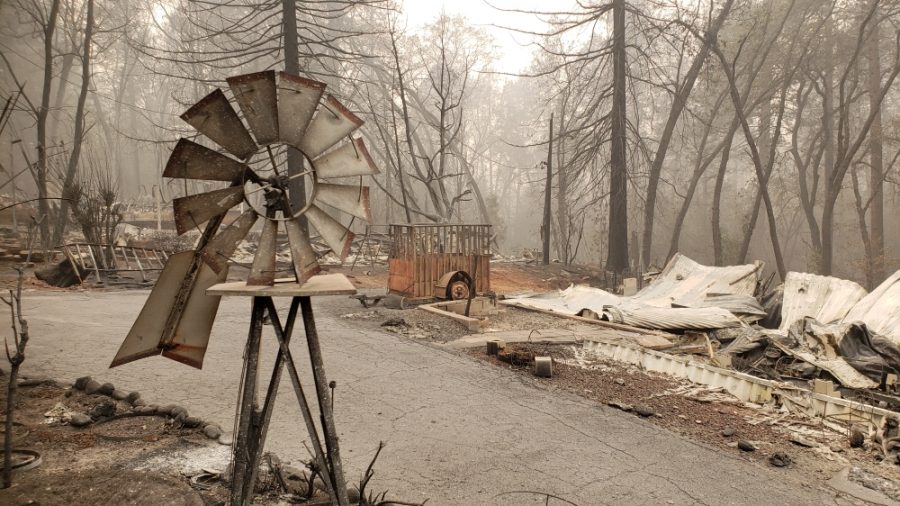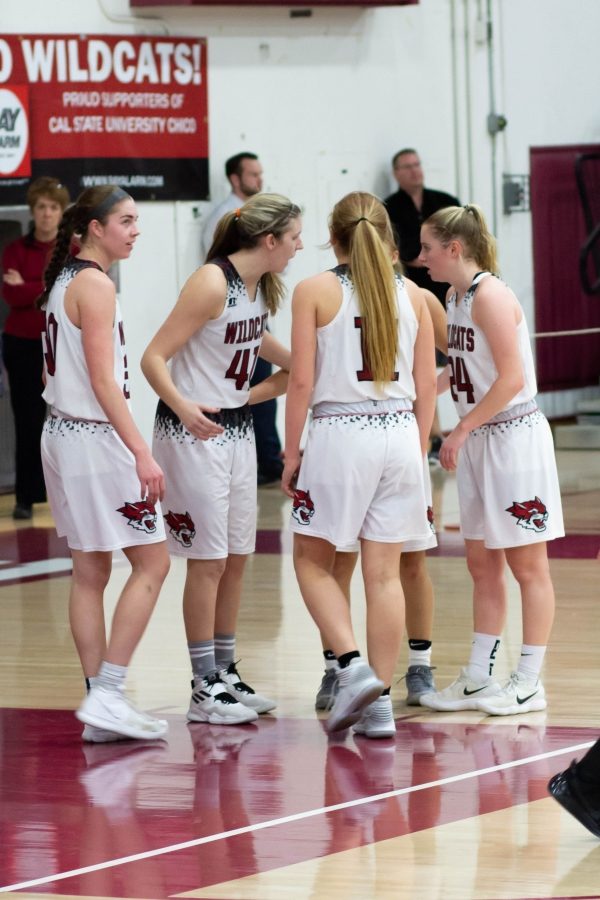Students of Mark Stemen’s Community Service and Geography class shared stories, Dec. 5, written from the perspective of students living in a much warmer and very different future from what we now face, during a Community Action Planning (CAP), organized by the First-Year Experience Program.
With data taken from cal-adapt.org and based on the fifth climate assessment by the Intergovernmental Panel on Climate Change (IPCC)—a multidisciplinary group of thousands of scientists from across the globe—each member of the class was tasked with writing a story. Each one related to a specific topic and took place in the year 2037, the 150th anniversary of the university.
Mark Stemen, Professor of Geography and Planning, speaking at CAPTalks, Chico 2037. His classes used data from https://t.co/FbZ6FU2y0R that aggregated data to plot future climate changes. Here he speaks on how large fires will be more common, as well as drought. @theorion_news pic.twitter.com/qdK3Tl3ROc
— Josh (@joshcozine) December 6, 2018
The stories were taped along the walls of Colusa 100, with poster-sized paper taped below them where attendees could suggest how to change the future after 2037. Greenhouse gasses already released will continue to contribute to global warming until at least then, according to Stemen, and the IPCC.
“We’re still running on a business as-is model,” Stemen said.
Although the university has accepted climate change as a real thing, and taken steps toward educating students and making carbon neutrality pledges, they’re all based on older models which don’t recognize the acceleration of climate change. According to Stemen, even more action is necessary.
“We’re demanding the university be prepared with knowledge,” Nate Millard, Sustainability Pathway Coordinator said.
Millard believes the university is in a unique position to act on its research and values and make real changes towards a better future.
“We’re all frustrated by campus inaction… and Today Decides Tomorrow,” Millard said, echoing the words every Chico State student, faculty and alumni knows by heart.
Millard’s hope, and the plan of the CAP Talk, is to receive input from as many people as possible to incorporate into a resolution that will be presented to the Academic Senate next semester.
Sophia Lepore’s story touched on the possible future of the outdoor adventure group, Adventure Outings, she joined. In accordance with data from cal-adapt.org, she paints a picture of the Northern California with far less snow, and many more wildfires as the climate warms.
“The hills surrounding the river were blackened and dead, with no sign of life. It was a horrible sight, but rafters’ grim faces were set in determination. This was why they were here,” Lepore wrote.
She tells of a new prerogative for the group, planting and regrowing after wildfires, rather than simply enjoying the great outdoors. According to her story, and cal-adapt data, wildfires are expected to continue and accelerate. It’s her hope, that while the group will lose access to ski trips as snow-packs falter, rafting trips might change into reparation trips, repairing damaged zones from wildfires.
Jared Geiser, student of Community Service and Geography and Executive Vice President of the Associated Students, elaborated on an issue which may one day affect all Chico State graduates.
“I am glad the graduation ceremonies are not the same as they were when my dad graduated from Chico State, or else I’d have to make sure my family sits on the east side of the stadium to avoid direct sunlight,” Geiser wrote.
According to his story, again drawn from data from cal-adapt.org and the fifth climate assessment, temperatures will get hotter, much more often to the point graduation dates might be made earlier or held indoors. A rise in extreme temperature days increasing exponentially by 2037 will call for precautions beyond sunblock to combat issues like heat stroke.
These are of course works of fiction, but they are firmly rooted in real results from modern climate scientists not pushed, or taught currently by the university except in fringe sustainability courses.
“Stay engaged. The powers that be aren’t going to do it for you,” Stemen said at the end of the presentation.
“You’re gonna need to do it for yourself,” Stemen added, again asking for people to fill in their suggestions to include in the upcoming resolution.
Stemen and Millard, with student help, plan to combine as many of the suggestions as possible into a resolution that will be brought to the Academic Senate next semester for action.
Time being already against us, they hope for immediate action.
Josh Cozine can be reached at [email protected] or @[email protected]



